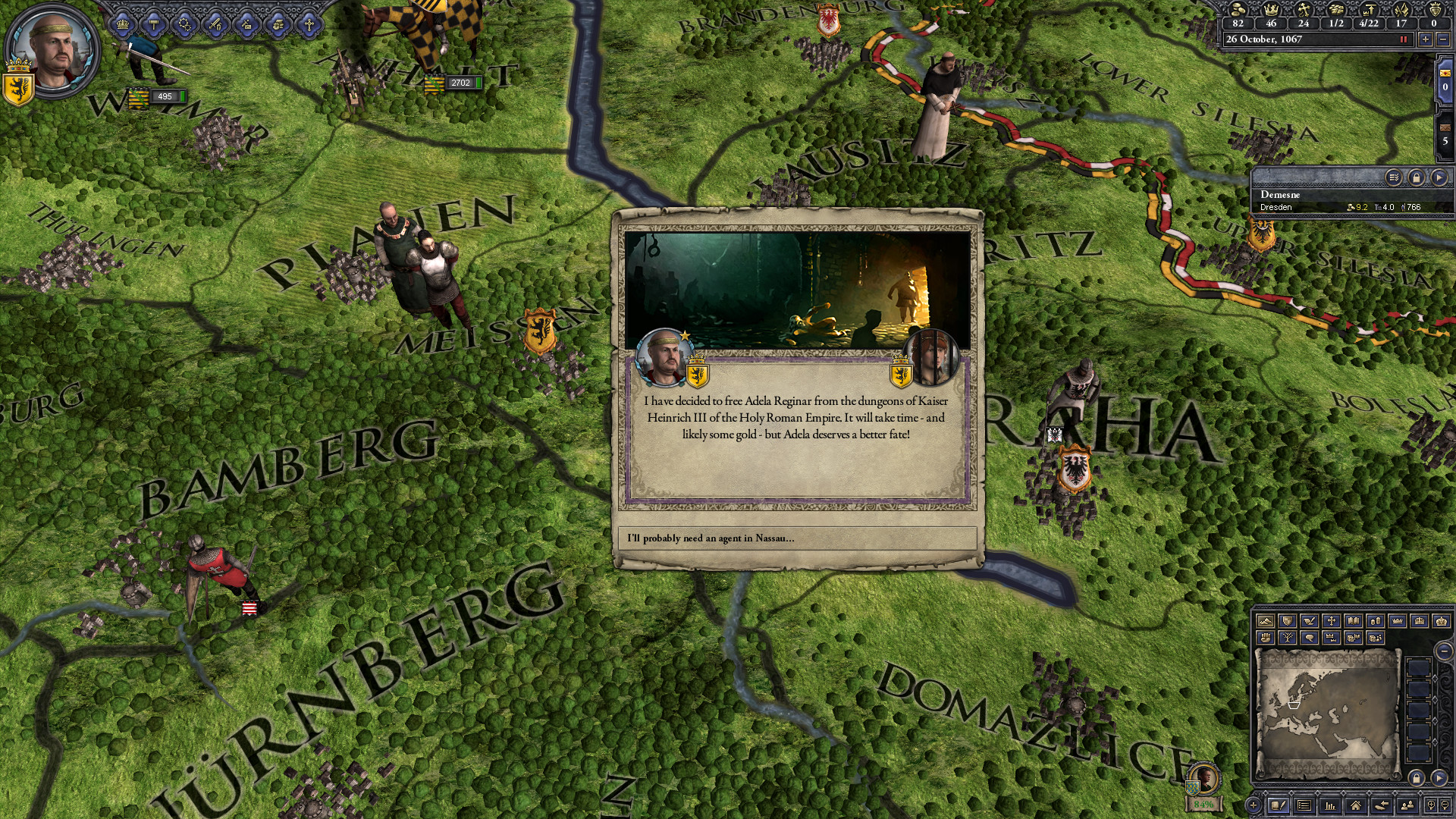



In 1027, Cnut travelled to Rome, partly to expiate his sin for having Jarl Ulf killed the previous Christmas, partly to attend the coronation of Conrad II as Holy Roman Emperor and to demonstrate his importance as a ruler. The precise outcome is disputed, but Cnut came out best Olaf fled and the threat to Denmark was dispelled. Cnut took Olaf's fleet by surprise and took the battle to the Swedish fleet at the Battle of the Helgeå. King Olaf II of Norway and King Anund Jacob of Sweden, seeing the combined Anglo-Danish kingdom as a threat – Cnut's father Sweyn had asserted power over both their countries – took advantage of Cnut's being in England to attack Denmark in 1025 or 1026, and were joined by Ulf Jarl, Cnut's Danish regent, and his brother. One Danish chronicle states that the Danes had previously deposed Harald in favour of Cnut, then brought back Harald because of Cnut's frequent absences, until Cnut finally became king permanently after his brother's death. While there he sent his subjects in England a letter saying he was abroad to avert an unspecified "danger", and he only returned to quell incipient rebellions. Cnut was his brother's heir and went to Denmark in 1019 to claim it. King Harald died childless in 1018 or 1019, leaving the country without a king. In 1018 he paid off his fleet (with money especially from the citizens of London) and was fully recognised as King of England. In summer 1017 he cemented his power by marrying Æthelred's widow, Emma, although he had previously married an English noblewoman, Ælfgifu of Northampton. However, on 30 November 1016, Edmund in turn died, leaving Cnut as King of England. He and Cnut struck an agreement under which Edmund would retain Wessex and Cnut rule all of England north of the Thames. Cnut blockaded London, but was forced to leave to replenish his supplies and was beaten by Edmund at the Battle of Otford however, following the Danes as they raided into Essex, Edmund was in turn defeated at the Battle of Assandun. The Londoners chose his son Edmund as their king, while most of the nobles met at Southampton and swore fealty to Cnut. Before the decisive battle for London could be fought, Æthelred died on 23 April 1016. The English were divided by intrigue among the king, his sons, and other nobles within four months one of Æthelred's sons had pledged allegiance to Cnut and he controlled Wessex, the historic heart of the kingdom. Ĭnut's brother Harald became king of Denmark, but with help from Eric Haakonsson of Norway, Cnut raised a new invasion fleet of his own and returned to England in summer 1015. However, the invasion fell apart: the men of the Kingdom of Lindsey, who had promised to supply horses for a tactical raid, were not ready before the English nobles had reinstalled King Æthelred (whom they had previously sent into exile), after forcing him to agree to govern less harshly. When his father died on 3 February 1014 during an invasion of England, Cnut, who had been left in command of the fleet in the River Trent while Sweyn was in the south of England, was acclaimed by the Danes. See also: History of Anglo-Saxon England and Cnut the Great's invasion of EnglandĬnut was the younger son of the Danish king Sweyn Forkbeard. At the height of his power, when Cnut ruled all three kingdoms (1028–1035), he was the most powerful ruler in western Europe after the Holy Roman Emperor. He died in 1035 and his realm was again divided, but his successor in Denmark, Harthacnut, inherited England in 1040 and ruled it until his death. His son Cnut the Great acquired England in 1016, Denmark in 1018 and Norway in 1028. He died in the following year, and his realm was divided. The first king to unite all three kingdoms was Sweyn Forkbeard, king of Denmark since 986 and of Norway since 1000, when he conquered England in 1013. This ephemeral Norse-ruled empire was a thalassocracy, its components only connected by and dependent upon the sea. North Sea Empire and Anglo-Scandinavian Empire are terms used by historians to refer to the personal union of the kingdoms of England, Denmark and Norway for most of the period between 10 towards the end of the Viking Age.


 0 kommentar(er)
0 kommentar(er)
